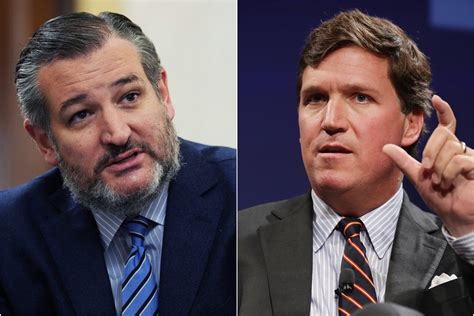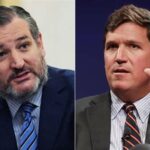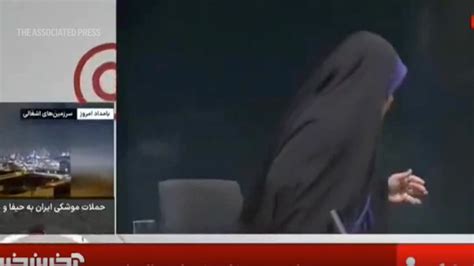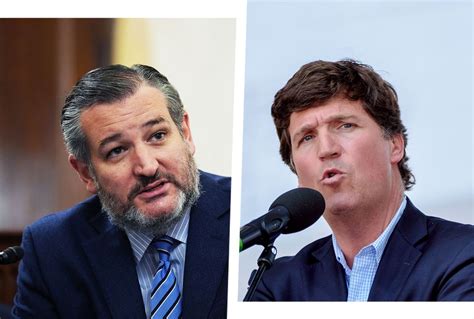
Tucker Carlson and Senator Ted Cruz engaged in a heated exchange regarding the accuracy of information surrounding the potential Iranian response to the recent Israeli strike on its Syrian embassy, culminating in Carlson accusing Cruz of “calling BS!” on claims made on Carlson’s show.
Fox News host Tucker Carlson and Republican Senator Ted Cruz engaged in a contentious debate over the potential Iranian response to the Israeli airstrike on Iran’s consulate in Damascus, Syria, an attack that killed several Iranian military officials, including a top commander. The fiery exchange, which occurred on Carlson’s online show on X, formerly Twitter, saw Carlson challenging Cruz’s assessment of the severity of the threat and accusing him of dismissing factual claims presented on the program.
The core of the dispute centered on Carlson’s assertion that Iran’s threatened response would be significant and potentially devastating. He criticized Cruz for allegedly downplaying the gravity of the situation. “So, you’re calling BS! on what we just said?” Carlson asked Cruz during the interview, highlighting the tension between the two.
Cruz, while acknowledging the seriousness of the situation in the Middle East, appeared to caution against exaggerating the potential for a major Iranian retaliation. He emphasized the need for a measured response and strategic assessment of the facts, rather than succumbing to hyperbole. The senator has been vocal about his stance on the Middle East, particularly regarding Iran’s influence and activities in the region.
Carlson pressed Cruz on whether he believed the information presented on his show regarding the Iranian threat was inaccurate. This led to a back-and-forth where Carlson repeatedly questioned Cruz’s position and sought clarification on his assessment of the situation. The exchange underscored a broader debate within conservative circles about foreign policy strategy and the appropriate level of interventionism in the Middle East.
The tensions between Carlson and Cruz reflect differing viewpoints on the best approach to addressing the complex geopolitical landscape involving Iran, Israel, and the United States. Carlson has often advocated for a more non-interventionist foreign policy, while Cruz typically supports a stronger stance against perceived adversaries of the U.S. and its allies.
This public disagreement between two prominent figures in conservative media and politics highlights the nuanced and often conflicting perspectives within the Republican party regarding foreign policy challenges and the best course of action in volatile regions like the Middle East. The debate also underscores the evolving role of media platforms in shaping public discourse and influencing political narratives.
The episode concluded without a clear resolution, leaving audiences to interpret the differing viewpoints and assess the credibility of the competing claims. The exchange is indicative of the complex and multifaceted nature of foreign policy decision-making and the challenges of navigating competing perspectives and priorities.
The recent Israeli airstrike, which precipitated the escalating tensions, took place on April 1, 2024, targeting the Iranian consulate in Damascus. The strike resulted in the death of several high-ranking Iranian military officials, including Mohammad Reza Zahedi, a senior commander in the Islamic Revolutionary Guard Corps (IRGC) Quds Force, and his deputy, Mohammad Hadi Haji Rahimi. Iran has vowed to retaliate for the attack, leading to heightened security alerts across the region.
The attack has further strained already-tenuous relations between Iran and Israel, exacerbating long-standing tensions over Iran’s nuclear program and its support for proxy groups in the region. The United States, a key ally of Israel, has urged restraint on all sides to prevent a wider conflict. However, the situation remains volatile, with the potential for further escalation.
The exchange between Carlson and Cruz also touched upon the role of media in shaping public perception of foreign policy events. Carlson, known for his provocative and often controversial commentary, has frequently used his platform to challenge mainstream narratives and question established foreign policy doctrines. Cruz, as a seasoned politician, is adept at navigating media interviews and articulating his policy positions. The clash between these two figures highlights the power of media to influence public opinion and shape political debate.
The broader context of the situation involves the complex web of alliances and rivalries that define the Middle East. Iran supports various proxy groups, including Hezbollah in Lebanon and Hamas in Gaza, which have been involved in conflicts with Israel. Israel, in turn, views Iran as a major threat and has repeatedly vowed to prevent it from acquiring nuclear weapons. The United States has sought to balance its support for Israel with its efforts to de-escalate tensions and prevent a wider regional conflict.
The ongoing tensions underscore the urgent need for diplomatic efforts to address the underlying causes of the conflict and prevent further escalation. The United Nations and other international organizations have called for restraint and dialogue, but the prospects for a peaceful resolution remain uncertain.
The incident involving Carlson and Cruz also underscores the growing polarization of political discourse in the United States. Even within the conservative movement, there are significant differences of opinion on foreign policy and other key issues. These divisions can make it difficult to forge a consensus on important policy decisions and can contribute to political gridlock.
The debate between Carlson and Cruz also raised questions about the accuracy and reliability of information sources. Carlson’s claims about the potential Iranian response were based on information he presented on his show, while Cruz appeared to question the validity of those claims. This highlights the importance of critical thinking and media literacy in evaluating information from various sources.
The situation in the Middle East remains fluid and unpredictable, with the potential for further escalation. The exchange between Carlson and Cruz serves as a reminder of the complex challenges involved in navigating foreign policy crises and the importance of informed public discourse.
In-depth Analysis
The clash between Tucker Carlson and Ted Cruz is more than just a cable news squabble; it’s a microcosm of the deeper fissures within the conservative movement regarding foreign policy. Carlson, a vocal advocate for a more isolationist approach, often questions the necessity of U.S. intervention in foreign conflicts, emphasizing the costs and potential risks of such involvement. Cruz, on the other hand, generally aligns with a more hawkish stance, favoring a strong U.S. presence on the global stage to counter perceived threats and protect American interests.
The specific point of contention – the potential Iranian response to the Israeli airstrike – reveals the contrasting perspectives on threat assessment. Carlson seemed to suggest that the Iranian threat was being downplayed, potentially leading to complacency. Cruz, while not dismissing the threat entirely, appeared to advocate for a more measured and data-driven evaluation, cautioning against alarmist rhetoric.
This disagreement reflects a broader debate about the role of rhetoric and its impact on policy decisions. Is it better to err on the side of caution and potentially overestimate a threat, or to remain level-headed and risk underestimating the danger? The answer, of course, is complex and depends on a multitude of factors, including the specific context, the available intelligence, and the potential consequences of each approach.
The incident also highlights the increasing importance of alternative media platforms in shaping public opinion. Carlson’s show on X has a significant following, and his views often resonate with a segment of the population that feels disenfranchised by mainstream media. This underscores the need for critical media literacy and the ability to evaluate information from a variety of sources, including those that may not adhere to traditional journalistic standards.
Furthermore, the exchange underscores the complexities of the U.S.-Israel relationship. While the U.S. is a staunch ally of Israel, there are often disagreements about specific policies and strategies. The Israeli airstrike on the Iranian consulate in Damascus, for example, raised concerns within the U.S. government about the potential for escalation and the impact on regional stability. The U.S. has urged restraint on both sides, but its ability to influence events on the ground is limited.
The broader implications of the Israeli-Iranian conflict are far-reaching. A wider war in the Middle East could have devastating consequences, both for the region and for the global economy. It could also draw the United States into another costly and protracted conflict, something that many Americans are eager to avoid.
Background Information
The Israeli airstrike on the Iranian consulate in Damascus was a significant escalation in the ongoing shadow war between Israel and Iran. Iran has long been a supporter of proxy groups in the region, including Hezbollah in Lebanon and Hamas in Gaza, which have been involved in conflicts with Israel. Israel, in turn, views Iran as a major threat and has repeatedly vowed to prevent it from acquiring nuclear weapons.
The attack on the Iranian consulate was particularly provocative because it targeted a diplomatic facility, which is typically considered to be inviolable under international law. While Israel has not officially claimed responsibility for the attack, it is widely believed to have been carried out by the Israeli military.
The Iranian response to the attack has been carefully calibrated. While Iran has vowed to retaliate, it has also signaled that it does not want to provoke a wider war. This suggests that Iran is seeking to strike a balance between deterring future attacks and avoiding a full-scale conflict.
The United States has been working to de-escalate tensions in the region. U.S. officials have urged restraint on both sides and have emphasized the importance of diplomacy. However, the situation remains volatile, and there is a risk of further escalation.
Expanded Context
The Tucker Carlson-Ted Cruz exchange should also be viewed within the context of the upcoming U.S. presidential election. Foreign policy is likely to be a major issue in the campaign, and the candidates will be forced to articulate their positions on a range of issues, including the Middle East, China, and Russia.
The debate between Carlson and Cruz reflects the broader divisions within the Republican party on foreign policy. While some Republicans favor a more interventionist approach, others are calling for a more restrained foreign policy. This division could play a significant role in the Republican primary and could influence the party’s platform in the general election.
The situation in the Middle East is likely to remain a major challenge for the next administration. The new president will have to navigate a complex web of alliances and rivalries and will have to make difficult decisions about how to protect U.S. interests in the region.
The Carlson-Cruz exchange serves as a reminder of the importance of informed public discourse on foreign policy issues. The American people need to be aware of the challenges facing the country and need to be able to evaluate the competing arguments about the best way to address those challenges.
The ongoing tensions in the Middle East underscore the need for a comprehensive and sustainable approach to regional security. This approach should include diplomatic efforts to address the underlying causes of the conflict, as well as security measures to deter aggression and protect civilians.
The international community has a responsibility to work together to promote peace and stability in the Middle East. This includes supporting diplomatic efforts, providing humanitarian assistance, and holding accountable those who violate international law.
The future of the Middle East depends on the willingness of all parties to engage in dialogue and to find common ground. While the challenges are significant, the potential rewards of peace and stability are enormous.
The Carlson-Cruz disagreement also touches on the evolving dynamics of conservative media. Carlson’s departure from Fox News and his subsequent move to X highlight the growing power of independent media platforms and the ability of individuals to bypass traditional gatekeepers. This shift has significant implications for the dissemination of information and the shaping of public opinion.
FAQ Section
Q1: What was the main point of disagreement between Tucker Carlson and Ted Cruz?
A1: The main point of disagreement revolved around the potential severity of Iran’s response to the Israeli airstrike on its consulate in Damascus. Carlson accused Cruz of downplaying the Iranian threat and “calling BS!” on information presented on Carlson’s show, while Cruz emphasized the need for a measured assessment and cautioned against exaggeration.
Q2: Why did the Israeli airstrike on the Iranian consulate in Damascus cause such tension?
A2: The airstrike was a significant escalation because it targeted a diplomatic facility, which is generally considered inviolable under international law. It also resulted in the death of several high-ranking Iranian military officials, including a senior commander in the Islamic Revolutionary Guard Corps (IRGC) Quds Force, further inflaming tensions between Iran and Israel.
Q3: What is the United States’ role in the ongoing tensions between Iran and Israel?
A3: The United States is a key ally of Israel and has sought to balance its support with efforts to de-escalate tensions and prevent a wider regional conflict. The U.S. has urged restraint on all sides and has emphasized the importance of diplomacy, but its ability to influence events on the ground is limited.
Q4: What are the broader implications of the conflict between Israel and Iran?
A4: A wider war in the Middle East could have devastating consequences for the region and the global economy. It could also draw the United States into another costly and protracted conflict. The conflict also reflects the complex web of alliances and rivalries that define the Middle East.
Q5: How does the Carlson-Cruz exchange reflect divisions within the conservative movement?
A5: The exchange highlights differing viewpoints on foreign policy strategy, with Carlson advocating for a more non-interventionist approach and Cruz typically supporting a stronger stance against perceived adversaries of the U.S. and its allies. This division within the conservative movement has implications for policy decisions and the upcoming U.S. presidential election.









